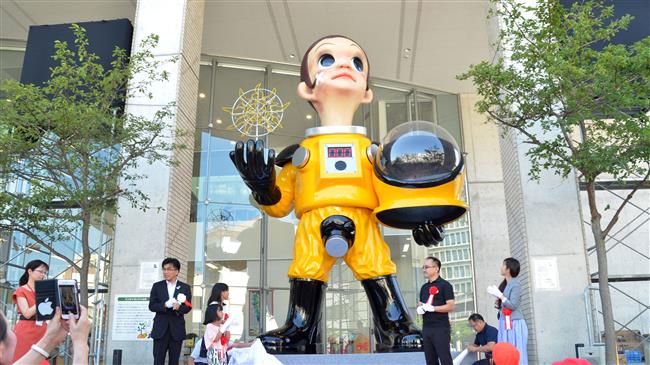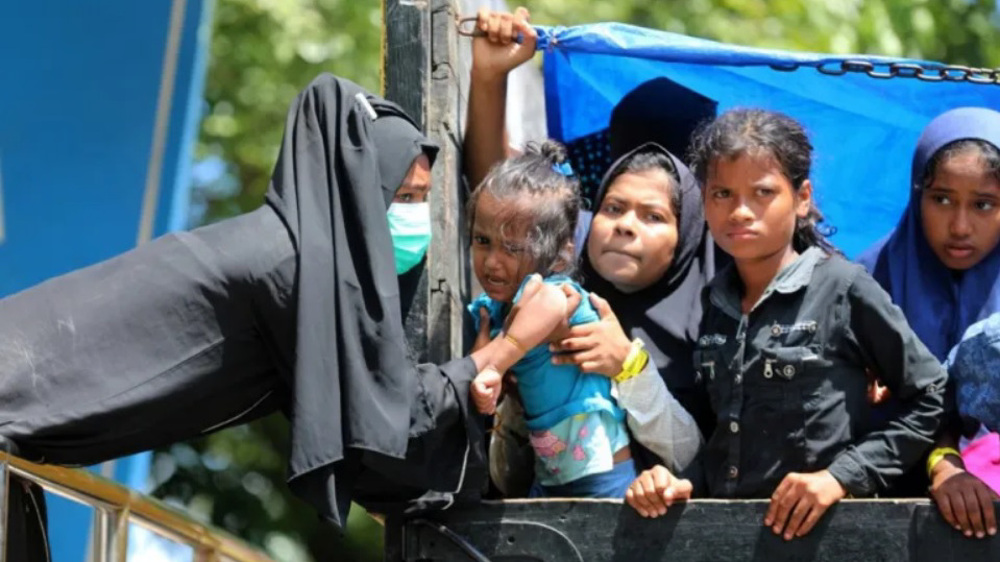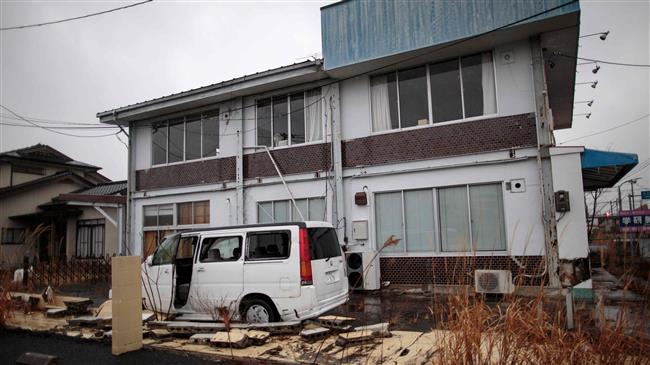Statue draws outcry in Japanese city hit with nuclear crisis
A large statue of a child wearing a protective suit in the Japanese city of Fukushima has triggered online criticism, as the nuclear-contaminated city continues to grapple with the aftereffects of a 2011 nuclear disaster.
The 6.2-meter sculpture, named “Sun Child” and set up this month near the city’s train station, displays a child figure wearing a yellow protective suit with a digital display on its chest showing “000” — which indicates no nuclear contamination.
The figure also holds a helmet in one hand — signifying safe-to-breathe air — and a symbol of sun in the other, signifying hope and new energy.
While the statue’s creator, Japanese artist Kenji Yanobe, says he intended it to serve as a symbol of hope, residents and other critics say that the statue reflects insensitivity to the plight of Fukushima.
Yanobe released a three-page statement to apologize for inciting the widespread contempt but said his work was meant as an expression of hope.
“It was my intention to show bright hopes for the future” by depicting the child as looking to the skies, he wrote.
Some critics said the statue may lead viewers to believe that residents had to protect themselves until the radiation level reaches zero — which can never happen as radiation occurs naturally on Earth.

“I saw Kenji Yanobe’s ‘Sun Child.’ It was truly creepy. I think it derides us and all the work Fukushima has done to erase reputational harm,” said another critic in a Twitter post.
“I understand it was intended to express hope as the helmet is removed but considering that Fukushima’s awful reputation continues, I believe the installation should have been canceled,” wrote another online critic.
Fukushima Mayor Hiroshi Kohata said in a separate statement that he accepted the criticism and would consider what action to take but stood by the work’s value.
The city is the local capital of Fukushima Prefecture, whose Fukushima Daiichi nuclear plant suffered a meltdown in a 2011 tsunami, triggering the world’s worst nuclear disaster since Chernobyl.
Radiation levels are back to normal in most parts of Fukushima, but local residents are still barred from living in certain areas, especially within a few kilometers of the affected plant.
The crisis affected a vast agricultural region, forcing many local residents to give up their ancestral properties — possibly never to return due to severe radioactive contamination.
The area is battling to restore its reputation, and local farm produce undergoes radiation checks to ensure safety before being shipped to stores.
VIDEO | Campaign to stop sale of Israel bonds grows in US
VIDEO | Iran judiciary, military detail foreign role in unrest; honor martyrs
Experts slam ‘scientifically reckless’ US withdrawal from WHO
Recent US military actions signal return to ‘predatory colonialism’: UN rapporteur
‘Confused clowns’: Iran FM blasts Zelensky over call for aggression on Iran
Trump disinvites Canada from Gaza board after PM Carney’s critique of US
Iranian students rally to condemn Germany's backing for rioters
Enemies of Ummah seek to expand war, Pezeshkian tells Erdogan













 This makes it easy to access the Press TV website
This makes it easy to access the Press TV website